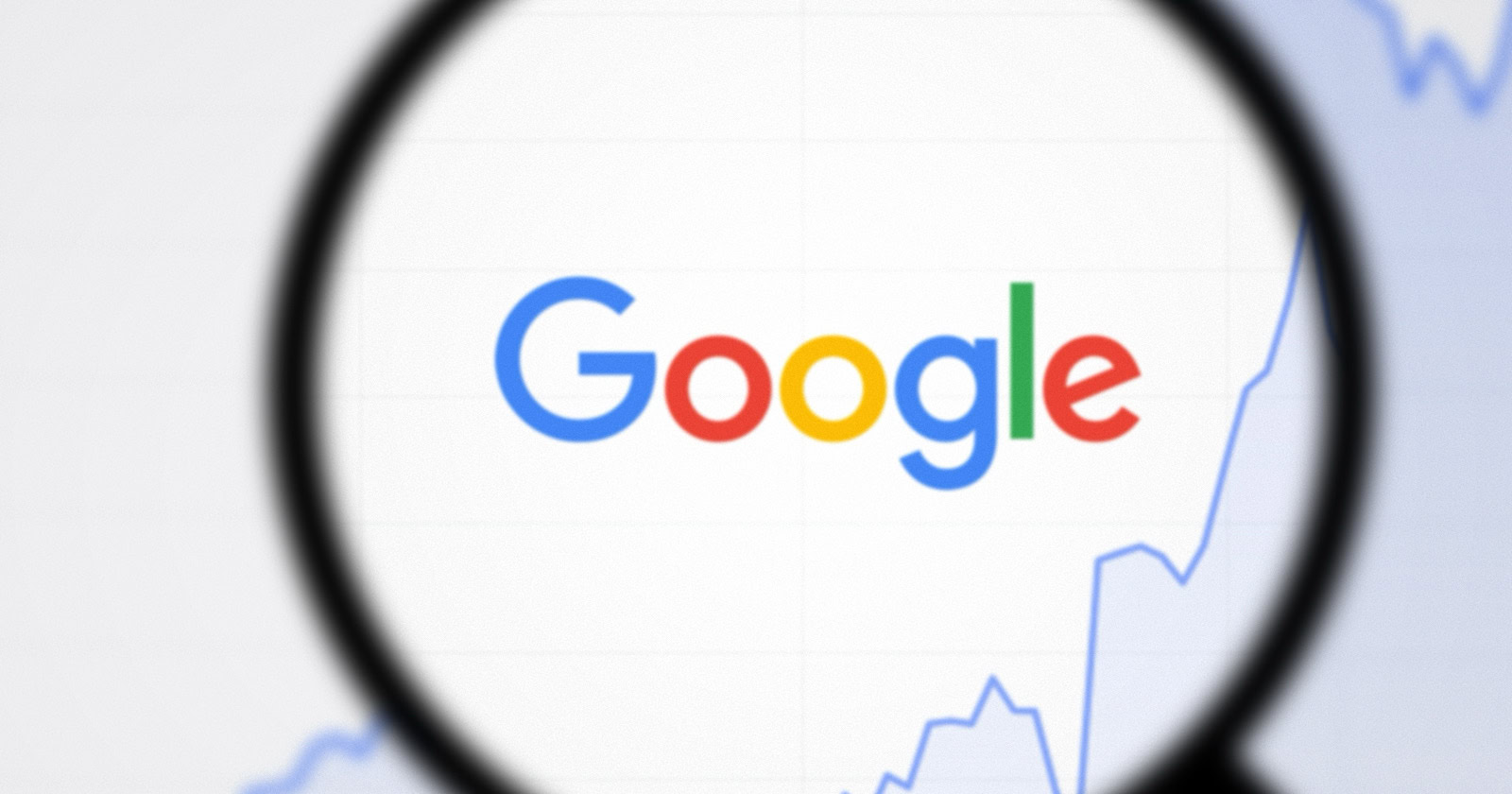AMP Under Fire in New Antitrust Lawsuit Against Google

AMP (Accelerated Mobile Pages), an open source initiative that originated with Google, is coming under greater scrutiny at the tail end of 2020, as the company is facing a rash of antitrust lawsuits beginning in October. The second suit is the one most pertinent to the AMP project. (A third suit brought by 38 state attorneys general alleges that Google is operating an illegal monopoly for online search and search advertising.)
The complaint claims that “Google’s program secretly let its own
exchange win, even when another exchange submitted a higher bid.” It also alleges that “Google ad server employees met with AMP employees to strategize about using AMP to impede header bidding, and how much pressure publishers and advertisers would tolerate:”
First, Google restricted the code to prohibit publishers from routing their bids to or sharing their user data with more than a few exchanges a time, which limited AMP compatibility with header bidding. At the same time, Google made AMP fully compatible with routing to exchanges through Google. Google also designed AMP to force publishers to route rival exchange bids through Google’s ad server so that Google could continue to peek at rivals’ bids and trade on inside information. Third, Google designed AMP so that users loading AMP pages would make direct communication with Google servers, rather than publishers’ servers. This enabled Google’s access to publishers’ inside and non-public user data. AMP pages also limit the number of ads on a page, the types of ads publishers can sell, as well as enriched content that publishers can have on their pages. There are many more claims about collusion with Facebook and other anti-competitive practices, but the section regarding AMP may be of particular interest to publishers who are considering implementing it: Google falsely told publishers that adopting AMP would enhance load times, but Google employees knew that AMP only improves the [redacted] and AMP pages can actually [redacted] [redacted] [redacted]. In other words, the ostensible benefits of faster load times for cached AMP version of webpages were not true for publishers that designed their web pages for speed. Some publishers did not adopt AMP because they knew their pages actually loaded faster than AMP pages.
Google also [redacted] of non-AMP ads by giving them artificial one second delays in order to give Google AMP a [redacted] [redacted] slows down header bidding, which Google uses to turn around and denigrate header bidding for being too slow. The complaint references internal documents that demonstrate how AMP is an inferior product when compared to the options previously available to publishers:
Google gave publishers a Faustian bargain: (1) publishers could lose more money by using header bidding because Google Search would suppress their search rankings and send traffic to competing AMP-compatible publishers; or (2) publishers could lose less money by using AMP pages and forgoing exchange competition in header bidding. Either option was far inferior to the options available to publishers before AMP was introduced. Just how inferior? [redacted] [redacted] [redacted] according to internal Google documents. Just 48 hours after this lawsuit was filed, AMP Advisory Committee member Terence Eden resigned from his position as a non-corporate representative.
The goal of the AMP AC is to “Make AMP a great web citizen,” but Eden declined to nominate a replacement candidate, because he is concerned that “Google has limited interest in that goal.”
“Google’s thesis is that the mobile-web is dying and people prefer to use apps – therefore making the web faster and more app-like will retain users,” Eden wrote. “Google doesn’t publish data about this, so I can’t directly criticize their motives. But I do not think AMP, in its current implementation, helps make the web better.
“I remain convinced that AMP is poorly implemented, hostile to the interests of both users and publishers, and a proprietary and unnecessary incursion into the open web.” In a follow-up email to The Register, Eden said, “I don’t know what Google’s motives are. But AMP has not been responsive to the needs of users, publishers, or the web community. We need an open, standards based approach to the web.”
Where will AMP go in 2021? Publishers have already invested a lot of resources in order to comply with its proprietary subset of HTML. Smaller sites often lack the resources to support AMP, which may be one reason why Google began investing heavily in developing WordPress plugins that make its products easier to use. More than 500,000 WordPress site are now using the official AMP plugin.
Google has spent years clawing for greater AMP adoption, despite widespread criticism that the project is a threat to the open web. Every last bit of that effort is now in jeopardy if the complaints in the antitrust lawsuits and their supporting documents are found to be true.
Google Warns About Misuse of Its Indexing API

Google has updated its Indexing API documentation with a clear warning about spam detection and the possible consequences of misuse.
Warning Against API Misuse The new message in the guide says:
“All submissions through the Indexing API are checked for spam. Any misuse, like using multiple accounts or going over the usage limits, could lead to access being taken away.”
This warning is aimed at people trying to abuse the system by exceeding the API’s limits or breaking Google’s rules.
What Is the Indexing API? The Indexing API allows websites to tell Google when job posting or livestream video pages are added or removed. It helps websites with fast-changing content get their pages crawled and indexed quickly.
But it seems some users have been trying to abuse this by using multiple accounts to get more access.
Impact of the Update Google is now closely watching how people use the Indexing API. If someone breaks the rules, they might lose access to the tool, which could make it harder for them to keep their search results updated for time-sensitive content.
How To Stay Compliant To use the Indexing API properly, follow these rules:
- Don’t go over the usage limits, and if you need more, ask Google instead of using multiple accounts.
- Use the API only for job postings or livestream videos, and make sure your data is correct.
- Follow all of Google’s API guidelines and spam policies.
- Use sitemaps along with the API, not as a replacement.
Remember, the Indexing API isn’t a shortcut to faster indexing. Follow the rules to keep your access.
This Week in Search News: Simple and Easy-to-Read Update

Here’s what happened in the world of Google and search engines this week:
1. Google’s June 2024 Spam Update
Google finished rolling out its June 2024 spam update over a period of seven days. This update aims to reduce spammy content in search results.
2. Changes to Google Search Interface
Google has removed the continuous scroll feature for search results. Instead, it’s back to the old system of pages.
3. New Features and Tests
- Link Cards: Google is testing link cards at the top of AI-generated overviews.
- Health Overviews: There are more AI-generated health overviews showing up in search results.
- Local Panels: Google is testing AI overviews in local information panels.
4. Search Rankings and Quality
- Improving Rankings: Google said it can improve its search ranking system but will only do so on a large scale.
- Measuring Quality: Google’s Elizabeth Tucker shared how they measure search quality.
5. Advice for Content Creators
- Brand Names in Reviews: Google advises not to avoid mentioning brand names in review content.
- Fixing 404 Pages: Google explained when it’s important to fix 404 error pages.
6. New Search Features in Google Chrome
Google Chrome for mobile devices has added several new search features to enhance user experience.
7. New Tests and Features in Google Search
- Credit Card Widget: Google is testing a new widget for credit card information in search results.
- Sliding Search Results: When making a new search query, the results might slide to the right.
8. Bing’s New Feature
Bing is now using AI to write “People Also Ask” questions in search results.
9. Local Search Ranking Factors
Menu items and popular times might be factors that influence local search rankings on Google.
10. Google Ads Updates
- Query Matching and Brand Controls: Google Ads updated its query matching and brand controls, and advertisers are happy with these changes.
- Lead Credits: Google will automate lead credits for Local Service Ads. Google says this is a good change, but some advertisers are worried.
- tROAS Insights Box: Google Ads is testing a new insights box for tROAS (Target Return on Ad Spend) in Performance Max and Standard Shopping campaigns.
- WordPress Tag Code: There is a new conversion code for Google Ads on WordPress sites.
These updates highlight how Google and other search engines are continuously evolving to improve user experience and provide better advertising tools.
AI
Exploring the Evolution of Language Translation: A Comparative Analysis of AI Chatbots and Google Translate

According to an article on PCMag, while Google Translate makes translating sentences into over 100 languages easy, regular users acknowledge that there’s still room for improvement.
In theory, large language models (LLMs) such as ChatGPT are expected to bring about a new era in language translation. These models consume vast amounts of text-based training data and real-time feedback from users worldwide, enabling them to quickly learn to generate coherent, human-like sentences in a wide range of languages.
However, despite the anticipation that ChatGPT would revolutionize translation, previous experiences have shown that such expectations are often inaccurate, posing challenges for translation accuracy. To put these claims to the test, PCMag conducted a blind test, asking fluent speakers of eight non-English languages to evaluate the translation results from various AI services.
The test compared ChatGPT (both the free and paid versions) to Google Translate, as well as to other competing chatbots such as Microsoft Copilot and Google Gemini. The evaluation involved comparing the translation quality for two test paragraphs across different languages, including Polish, French, Korean, Spanish, Arabic, Tagalog, and Amharic.
In the first test conducted in June 2023, participants consistently favored AI chatbots over Google Translate. ChatGPT, Google Bard (now Gemini), and Microsoft Bing outperformed Google Translate, with ChatGPT receiving the highest praise. ChatGPT demonstrated superior performance in converting colloquialisms, while Google Translate often provided literal translations that lacked cultural nuance.
For instance, ChatGPT accurately translated colloquial expressions like “blow off steam,” whereas Google Translate produced more literal translations that failed to resonate across cultures. Participants appreciated ChatGPT’s ability to maintain consistent levels of formality and its consideration of gender options in translations.
The success of AI chatbots like ChatGPT can be attributed to reinforcement learning with human feedback (RLHF), which allows these models to learn from human preferences and produce culturally appropriate translations, particularly for non-native speakers. However, it’s essential to note that while AI chatbots outperformed Google Translate, they still had limitations and occasional inaccuracies.
In a subsequent test, PCMag evaluated different versions of ChatGPT, including the free and paid versions, as well as language-specific AI agents from OpenAI’s GPTStore. The paid version of ChatGPT, known as ChatGPT Plus, consistently delivered the best translations across various languages. However, Google Translate also showed improvement, performing surprisingly well compared to previous tests.
Overall, while ChatGPT Plus emerged as the preferred choice for translation, Google Translate demonstrated notable improvement, challenging the notion that AI chatbots are always superior to traditional translation tools.
Source: https://www.pcmag.com/articles/google-translate-vs-chatgpt-which-is-the-best-language-translator



